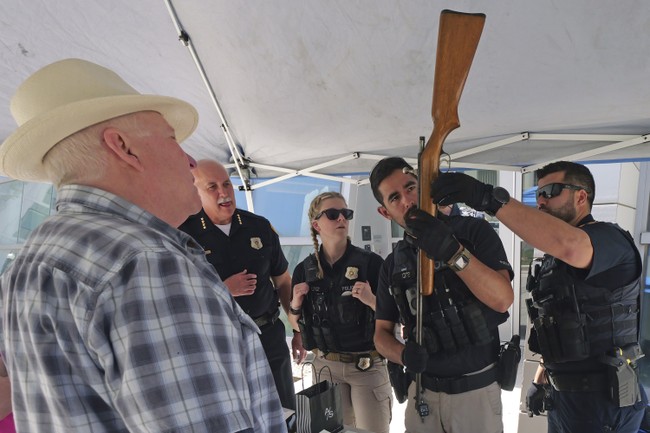The city of Columbus, Ohio, plans to do a gun buyback in the fall after holding a “successful” event last year.
This move resembles that of many other cities who claim they are reducing gun violence through these programs. The problem is that these programs don’t actually curb violent crime.
The city recently announced the gun buyback, which is championed by Rena Shak, executive director of the Office of Violence Prevention.
Last year’s September gun buyback brought in 344 firearms. The city gave a total of $136,600 for those firearms. The idea is people bring guns they have and want rid of, turn them in and get money in return.
“If you sell them to other locations, you never know where that gun is going to end up. We know that a large majority of guns that end up in crime are stolen from either a car or a house,” said Rena Shak, executive director of the Office of Violence Prevention. “Last year we paid well above street value to incentivize people to bring those firearms in so we could have them destroyed.”
While the city gave out $136,600, there was still $106,225 left over from last year’s event. Shak attributes that leftover money to running out of time.
“It ended up taking us five and a half hours to process all of the cars that were in line at the end of those three hours. We ended up sending quite a few people home because we had to cut the line off for logistical reasons,” she said.
Columbus City Council will vote on Monday night to use those leftover gift cards for a gun buyback event tentatively planned for September 14. Shak said they are looking at what they can change to make this year smoother and serve more people.
“This year we’re looking at location. We want to make sure it’s somewhere central so everybody around the city has easy access to the location. Somewhere that has a large parking area that we can have two lines of cars to process as opposed to the one we had last year,” she said. “These gun buybacks take an incredible amount of officers from our CPD units to come in and help process. It takes lab technicians, the amount of manpower it takes for that period of time is way more than anyone would expect.”
Gun buybacks are popular among the anti-gunner left, which wants as many guns out of the hands of everyday Americans as possible. They claim that incentivizing people to give up their firearms for gift cards will somehow save lives – even though the numbers say something completely different.
Studies suggest that while buybacks remove some firearms from communities, the number of guns that are surrendered is generally too small to have any real impact on overall firearm violence rates, according to research organization RAND.
Gun buyback programs aim to prevent firearm violence by removing dangerous guns from communities, but there is little empirical evidence of these programs’ effectiveness. One study suggests that higher-risk firearms are turned in at carefully designed gun buybacks, but it seems unlikely that this would overcome the primary weakness of the conceptual framework of a gun buyback: Even under the assumption of optimal implementation, a tiny fraction of guns in a community are turned in to gun buyback programs while sales and transfers of firearms continue. Although it is possible that gun buybacks have prevented incidents of firearm-related harm, it is very unlikely that such small reductions in the number of guns available would lead to measurable decreases in firearm crime, injuries, or deaths.
It is also worth noting that most gun crime is committed by those who obtain their firearms illegally. Criminals who commit these crimes are not the types of people who would willingly surrender their guns for a gift card.
Of course, the people promoting guy buybacks already know this. After having done these programs for years without any tangible impact on crime, they are fully aware that they are not saving lives by taking peoples old guns that they no longer want. These programs are designed to make it appear as if city governments are trying to curb crime when they really aren’t. Unfortunately, too many people fall for it.

